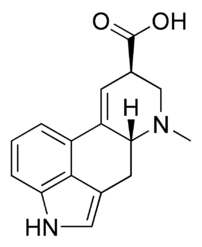Eeek! She had had a book published!
Oh my, that pseudo-Moroccan girl clearly was prone to exaggeration. She most definitely had not had a book published. But she had updated a guidebook on Marrakech: Thomas Cook City Spots, to be exact. She was told it was on the book stands on this very day. And she assumed that her name was in tiny letters somewhere inside.
In addition to oodles of phone and address confirmations, highlights of the guide book updating process included:
* Testing home made ice creams in ice cream parlors. Demanding second tastes just to make absolutely sure of quality. Putting only her most favorite in the guidebook.
* Loitering in gorgeous riad guesthouses, pretending to be a potential guest, meanwhile stealthily taking undercover notes
* Spending ridiculous sums of money while updating the shopping section. Rationalizing the purchase of approximately 63 pairs of Moroccan sequined leather slippers. Sigh.
* Sneakily slipping in a few of her own photos. (shhh....don't tell the publishers!)
* Observing whether the snake charmers on Jemma el-Fnaa square were truly able to charm the snakes or whether the snakes had a skeptical look in their eyes.
Needless to say, it was arduous, and it was harrowing, and the blogging girl barely made it out alive. But it was all for the good of her beloved new homeland. (Isn't this when the national anthem is supposed to start playing in the background?)
"My Marrakesh: Marrakesh." 12 Oct. 2008









![Reblog this post [with Zemanta]](http://img.zemanta.com/reblog_e.png?x-id=2941201b-9b1f-442a-87ed-9c13d704a719)

![Reblog this post [with Zemanta]](http://img.zemanta.com/reblog_e.png?x-id=00c9e176-944a-4e80-9527-4195860a645c)


![Reblog this post [with Zemanta]](http://img.zemanta.com/reblog_e.png?x-id=a6353ab9-3f61-4eb4-bc3b-e34b4bb7f064)
![Reblog this post [with Zemanta]](http://img.zemanta.com/reblog_e.png?x-id=94d49d56-0561-4245-9d8f-c0302ea9291a)


![Reblog this post [with Zemanta]](http://img.zemanta.com/reblog_e.png?x-id=5d7a8472-402a-425d-8004-365bd7735c36)

![Reblog this post [with Zemanta]](http://img.zemanta.com/reblog_e.png?x-id=22b2f843-442c-4521-8eb2-6de2dea8eb68)

![Reblog this post [with Zemanta]](http://img.zemanta.com/reblog_e.png?x-id=c29bca28-cc79-4a06-b276-86a28203e697)


![Reblog this post [with Zemanta]](http://img.zemanta.com/reblog_e.png?x-id=0ab9b40a-5d1b-4cab-8c75-94bfd9119ba1)

![Reblog this post [with Zemanta]](http://img.zemanta.com/reblog_e.png?x-id=ca3c2dd6-e555-4c68-ab0d-f66c08a4858e)

![Reblog this post [with Zemanta]](http://img.zemanta.com/reblog_e.png?x-id=be6e0fc3-7851-4309-8114-3f70c8690c28)

![Reblog this post [with Zemanta]](http://img.zemanta.com/reblog_e.png?x-id=47bc8366-5055-405d-9123-ce02ed903537)









![Reblog this post [with Zemanta]](http://img.zemanta.com/reblog_e.png?x-id=510ce738-3fe9-4deb-9f69-5faa549cb6c4)